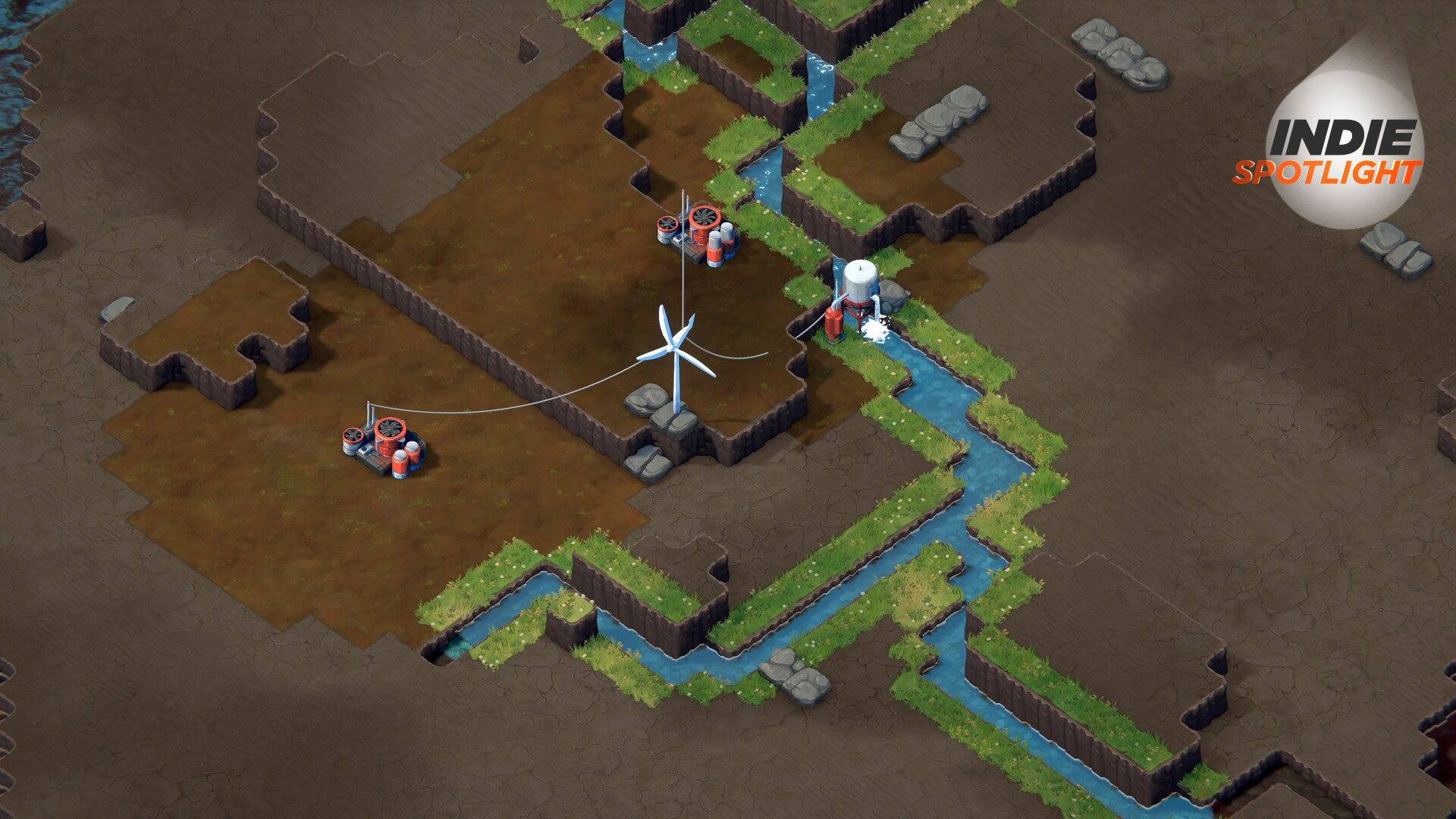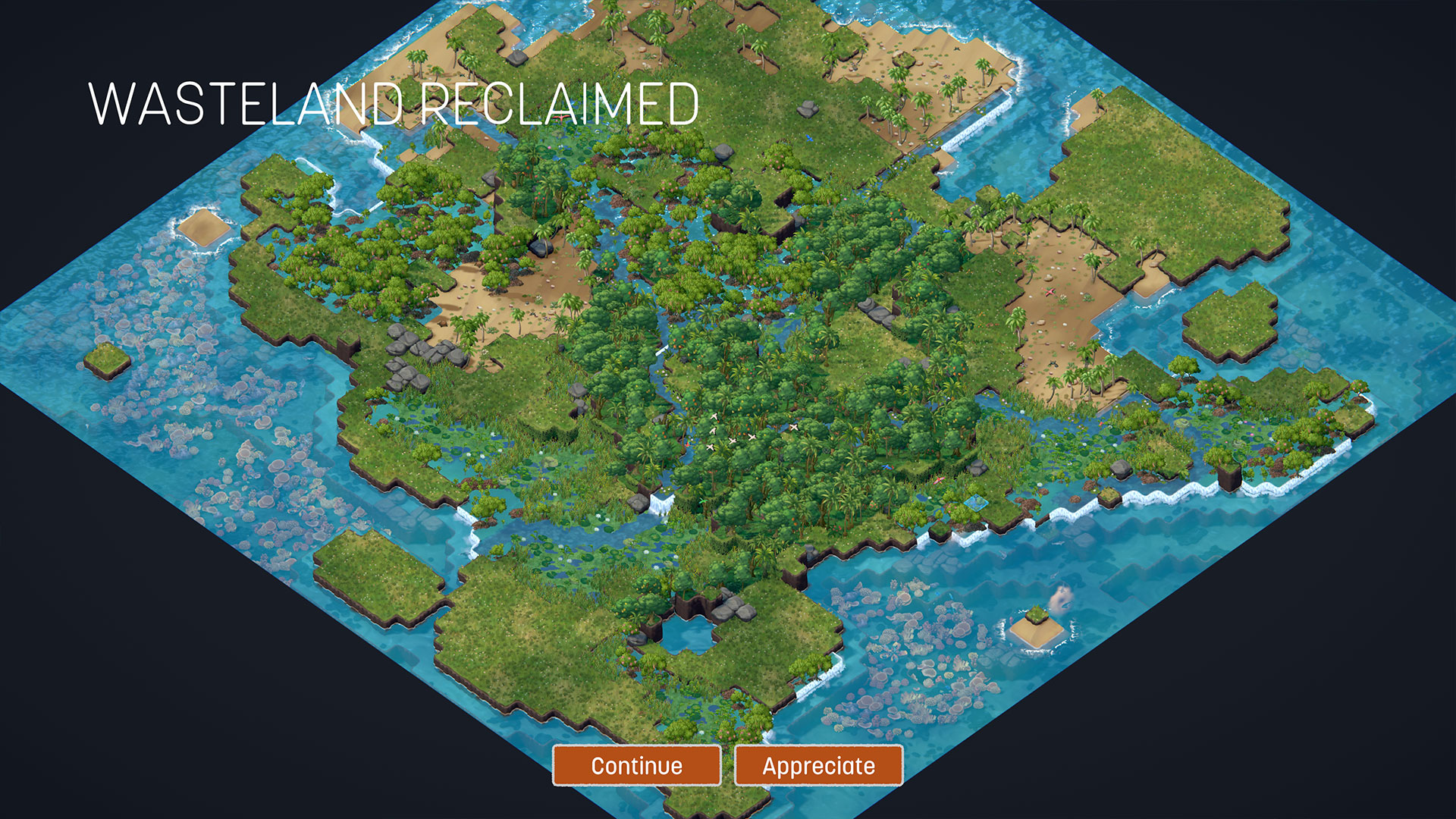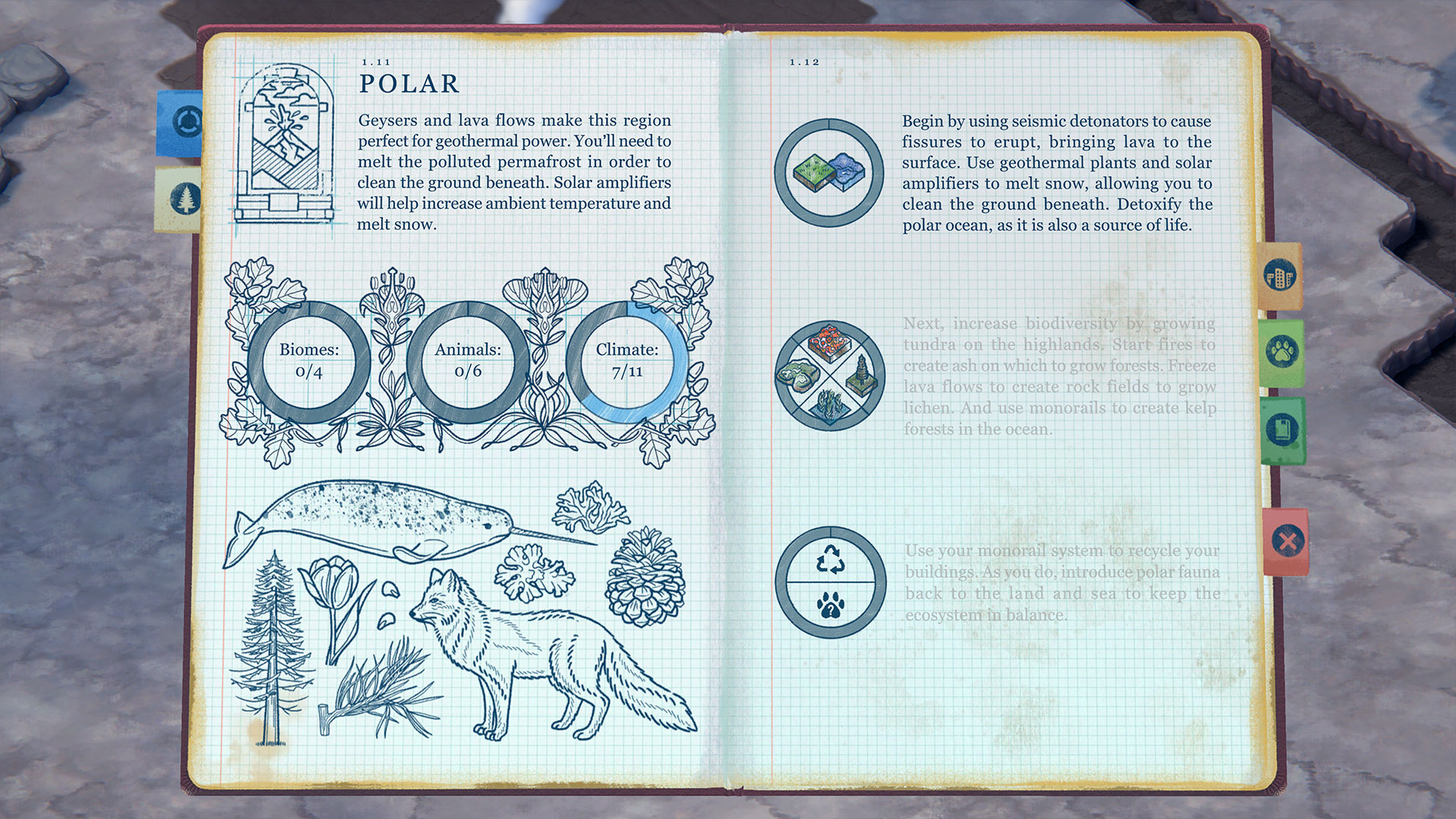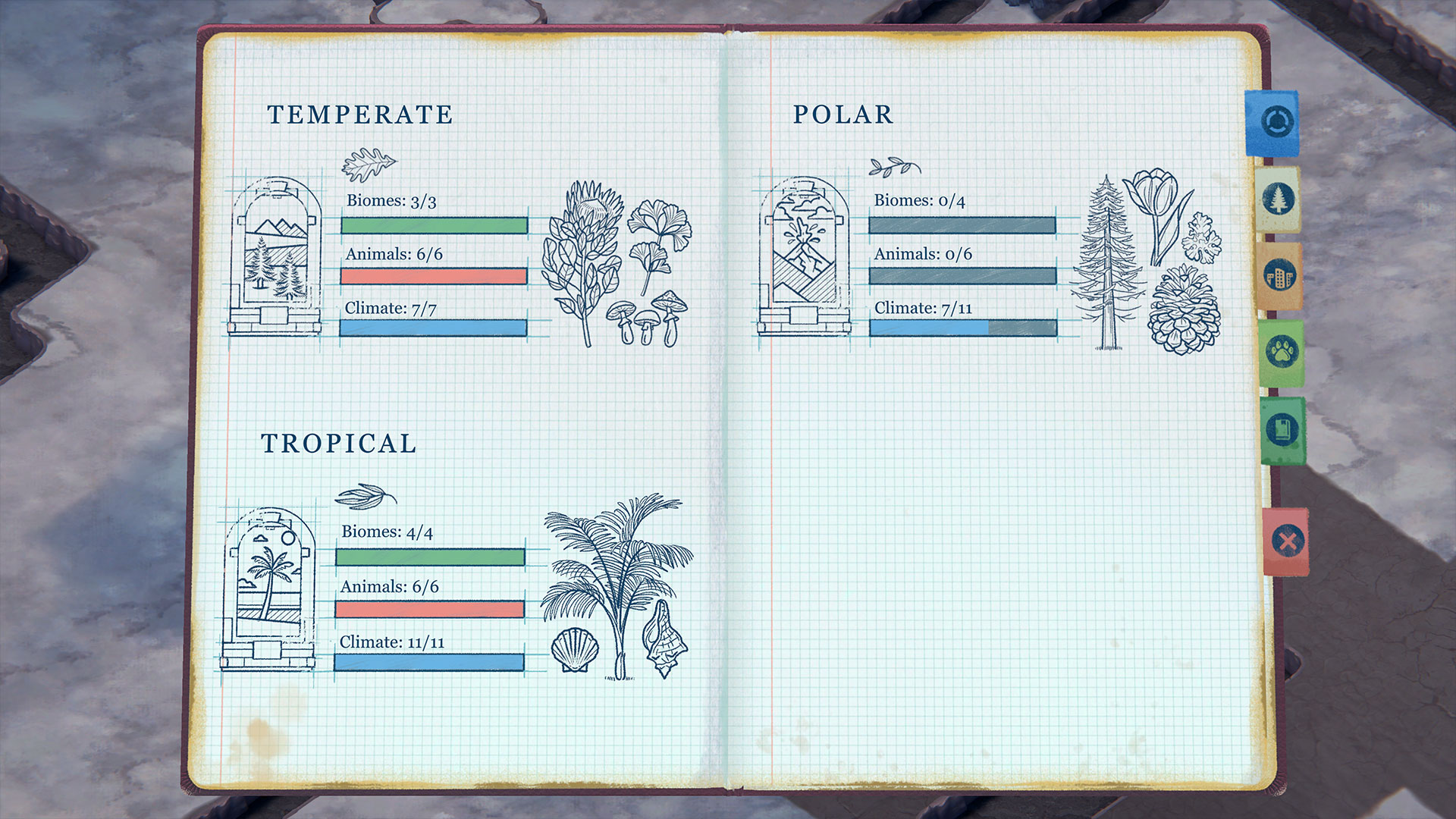Terra Nil asks you to be a city builder and then remove yourself entirely
Indie Spotlight: Terra Nil is a city builder but with zero cities and 100% nature

With the rain beating down against the window outside, it's not often I'm simultaneously celebrating rainfall in a game. And yet, Terra Nil is brilliant at making you applaud the most unexpected feats. Whether that's figuring out how to make a monorail spawn coral, understanding the habitat requirements of a beaver, or simply just tidying up - Terra Nil might be one of the most interesting "city builders" I've ever played.
Now, I've put that in quotation marks because, in reality, Terra Nil is the exact opposite of a city builder. It gives you a desolate wasteland of mankind's making, and asks you to build it up again, but only with the intention of eventually knocking it all down and letting nature take it back as its own.
All about the process

When you land in each area, there's nothing but a few rocks, a handful of empty riverbeds, and a ton of wasteland - a sea of brown essentially. It's a grim sight, but that's exactly why you're there; to restore the natural world to its former green glory, complete with wildlife.
I've spent ages placing wind turbines that can power toxin scrubbers to turn that wasteland into plantable soil. From there I can use irrigators to make grass and later cultivate hydroponiums and arboretums for evolving flat grassland into forests and wetlands. It's all a case of mapping out every placement to ensure you're getting the best coverage for each piece of equipment you have. There's a currency of sorts to balance, as you can make more by doing good work with revitalization, but it's a balance to ensure you don't end up with nothing left.
What that means is cultivating a little paradise is precise, fastidious work that somehow only gets more fun the longer you play and the more you understand how to create these natural cycles and patterns. The game does well to give you just enough tutorials to let you grasp the basics, but essentially leaves you to figure out the best solutions. I've enjoyed returning to areas, later on, to ensure I've done the best job possible with more knowledge.

Terra Nil also does well to split up restoration into three distinct sections. The first is restoring the land to grassland, with the aforementioned turbines and irrigators, but also dialing in water pumps to restore rivers and streams, and cultivating more rock formations to allow for the placement of more turbines.
Then you move onto biomes, which change and evolve as you move through different climates, from tropical to polar. You'll also eventually have to think about temperature and humidity among other factors as you create too - especially if you want to tick off optional research objectives that make your finished reclamation look even more visually appealing.
Sign up to the GamesRadar+ Newsletter
Weekly digests, tales from the communities you love, and more

The final stage is all about adding the fauna back in, which involves figuring out where on your map is the best habitat for each species. That might mean reorienting a few things, especially if one animal needs a forest, river and wetlands all within a stone's throw. But it's also about completely removing your involvement at this stage. You'll have to dismantle and recycle everything you've put down, slowly just leaving the natural habitat you've created to exist by itself before flying out of there on your airship entirely. It's a really lovely way to "solve" each of the puzzles the wastelands present, and I also appreciated the opportunity to turn each one into a living screensaver with an "appreciate" option next to the leave biome button.
This is why I'm celebrating a sudden downpour. I'm watching the last little squares of barren land I've not been able to reach with an irrigation system slowly turn from brown to green to really finish off my wasteland transformation. This is what Terra Nil has made me - an ecological perfectionist - and I'm absolutely loving it.
Terra Nil is out now on PC, and on iOS and Android for Netflix subscribers. Keep track of future releases with our roundup of upcoming indie games.

Sam Loveridge is the Brand Director and former Global Editor-in-Chief of GamesRadar. She joined the team in August 2017. Sam came to GamesRadar after working at TrustedReviews, Digital Spy, and Fandom, following the completion of an MA in Journalism. In her time, she's also had appearances on The Guardian, BBC, and more. Her experience has seen her cover console and PC games, along with gaming hardware, for a decade, and for GamesRadar, she's in charge of the site's overall direction, managing the team, and making sure it's the best it can be. Her gaming passions lie with weird simulation games, big open-world RPGs, and beautifully crafted indies. She plays across all platforms, and specializes in titles like Pokemon, Assassin's Creed, The Sims, and more. Basically, she loves all games that aren't sports or fighting titles! In her spare time, Sam likes to live like Stardew Valley by cooking and baking, growing vegetables, and enjoying life in the countryside.



